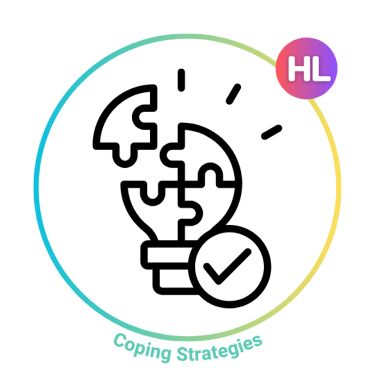





Overview
In competitive sport, coping strategies are essential tools that help athletes manage the psychological and emotional demands of training and performance. These strategies aim to reduce stress, regulate emotions, and maintain focus in high-pressure situations. Research shows that many coping strategies can be effective, but their success often depends on the individual athlete, the specific context, and the nature of the stressor being faced.
Coping strategies are typically grouped into three broad categories:
Problem-focused coping involves taking direct action to deal with the source of stress. Examples include setting goals, developing performance plans, seeking feedback, or adjusting tactics during competition. This approach is especially useful when the stressor is controllable, such as preparing for a difficult opponent or managing time before a match.
Emotion-focused coping aims to regulate the emotional response to a stressor. This might involve techniques such as deep breathing, mindfulness, positive self-talk, or visualisation. It is often used when athletes face uncontrollable stressors, such as poor officiating or bad weather, where changing the situation isn’t possible, but managing the emotional impact is key.
Avoidance coping involves distancing oneself from the stressor, mentally or physically. While this can be temporarily helpful (e.g., taking a break to clear the mind), over-reliance on avoidance strategies can lead to disengagement or suppressed anxiety if the underlying issue isn’t addressed.
The effectiveness of a coping strategy varies depending on the athlete’s personality, previous experiences, mental skills, and the demands of the moment. What works for one athlete may not work for another, and the same strategy may not be effective across all situations. For example, some athletes may thrive using pre-performance routines to calm nerves, while others may find motivation through energising self-talk or mental rehearsal of success.
Importantly, athletes who are more self-aware and emotionally intelligent are often better at selecting and applying the most effective coping strategies in various contexts. They can evaluate what is within their control, identify their emotional state, and adjust their approach accordingly. This adaptability is a key component of mental toughness and resilience.
Coaches and sport psychologists can support athletes by:
Helping them identify which strategies work best for their personality and sport
Encouraging regular practice of coping techniques during training
Promoting a growth mindset that embraces stress and pressure as opportunities to improve
Teaching athletes to reflect on past performances to refine their mental approach
In summary, coping strategies are highly individual, and their effectiveness depends on both the person and the situation. By developing a range of strategies and learning when to apply them, athletes can manage stress more effectively, maintain emotional control, and perform with greater consistency under pressure.






